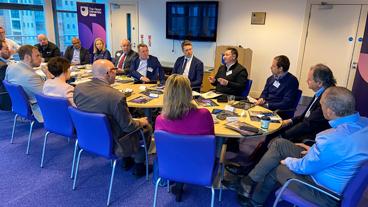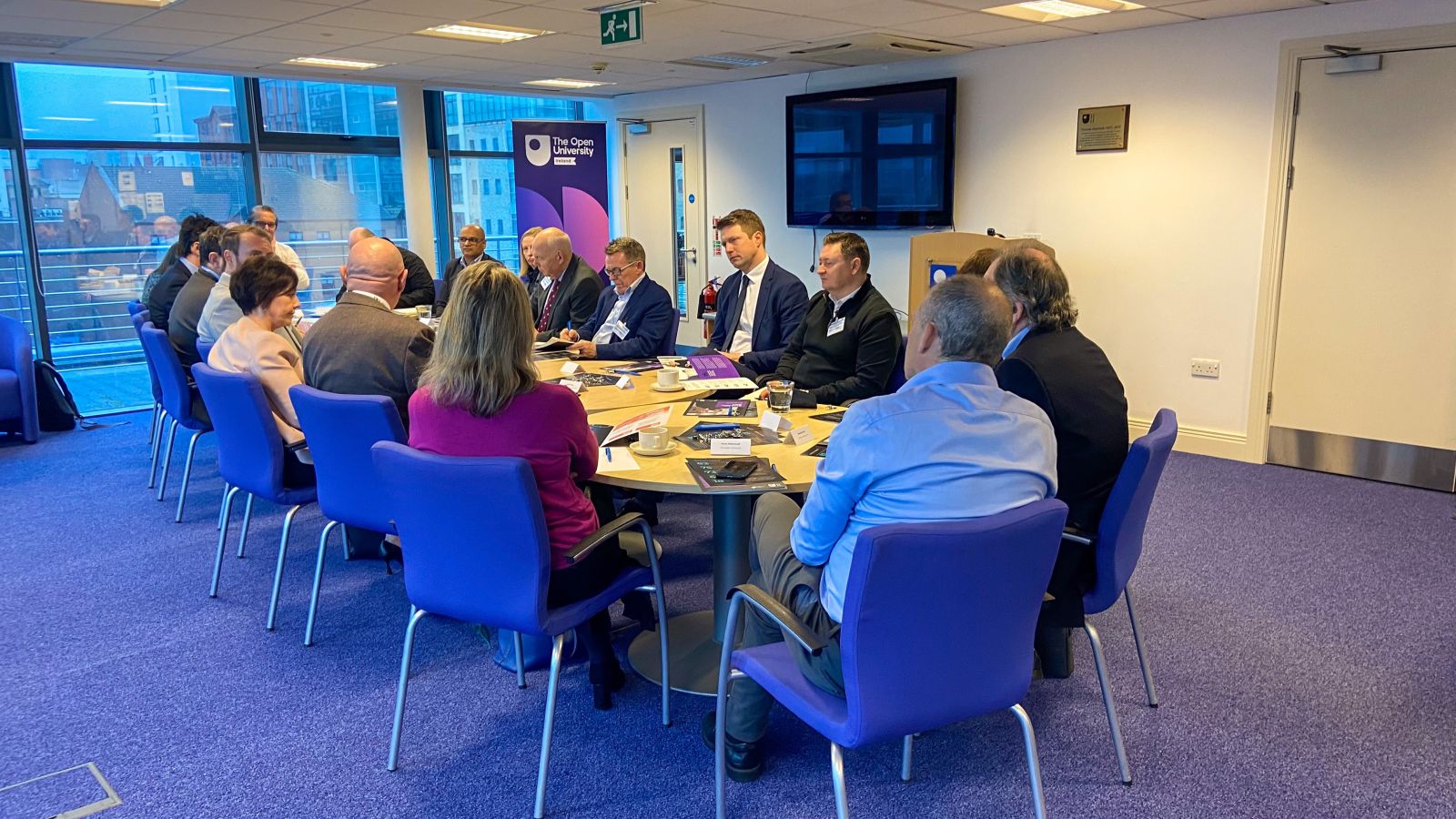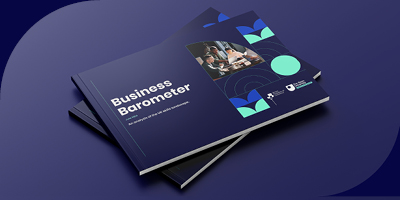Industry leaders highlight collaboration and bite-sized learning as key to addressing the skills gap

The Open University and the Northern Ireland Chamber of Commerce hosted a business roundtable on March 28, 2023, to discuss the skills gap in Northern Ireland. The event brought leaders from business, industry and government together to share their insights and perspectives on the challenges and opportunities facing the Northern Irish economy.
The skills gap has been identified as an ongoing issue in Northern Ireland, where the mismatch between the skills of the workforce and the demands of the labour market is hindering economic growth and development. The Business Barometer report by The Open University, found that 48% of businesses in Northern Ireland strongly agree that their organisation is experiencing a skills shortage. These skills gaps are often paid ‘lip-service’ but tackling these require a shift of mindset within an organisation. There is a demand for skills such as:
- Digital marketing and communications
- Sales and Business Development - export and international
- Green skills and sustainable practises
- Tech/digital skills
- Cybersecurity
The roundtable highlighted the strong need for short bite-sized learning, a flexible and accessible approach to upskilling, which can help to bridge the gap and equip workers with the skills they need to succeed in a changing workplace.
This approach to learning allows workers to upskill and reskill quickly and efficiently, without disrupting their work or personal lives. Additionally, short bite-sized learning can be customised to meet the specific needs of different industries and sectors, ensuring that workers are equipped with the most relevant and up-to-date skills.
With 95% of businesses in Northern Ireland considered small or micro, it was discussed whether these types of businesses have the ability to influence change in the skills gap or if large organisations dominate.
The consensus in the room was that it is up to employers, educators, and policy makers to come together to make things happen, with participants of the roundtable also highlighting the role of partnerships and collaboration in addressing the skills gap. Suggestions were made to create a central hub to enable employers to share best practices, curate existing resources, showcase how others have developed talent within their workforce, and feedback to government through a unified voice to ensure there are better schemes and funding to meet the needs of the market.
Such collaborations can help ensure that skills training programs such as the Department for the Economy’s Skill Up initiative are aligned with the needs of the labour market and can provide workers with the skills they need to succeed.
Commenting on the event, John D’Arcy, Director of The Open University in Ireland, said: “The skills gap is a significant challenge for Northern Ireland, but it also represents an opportunity for us to innovate and find new solutions. Short bite-sized learning or microcredentials offer a flexible and accessible approach to upskilling that can help bridge the gap and equip workers with the skills they need to succeed in the changing world of work. We are delighted to have hosted this roundtable and to have brought together leaders from government, business and industry to explore this important issue.”

Other issues discussed on the day included the ‘brain drain’ from Northern Ireland, the labour shortage due to the impact of the immigration laws and the benefits of improved workforce diversity.
The business roundtable is part of The Open University’s ongoing commitment to addressing the skills gap and supporting the economic development of Northern Ireland and the UK. The discussion will help inform the upcoming Business Barometer report, due to be published in June 2023.
The Open University’s annual Business Barometer report this year is in collaboration with the British Chamber of Commerce and based on a survey of more than 1,300 organisations of all sizes across the four nations of the UK from the public, private and third sectors, seeks to identify and the current business environment and that of the future to support businesses to make better decisions to deal with key issues.
You might also like...
Please contact us to speak to one of our business team advisors.
Not on our mailing list?
Sign up to receive regular emails that are full of advice and resources to support staff development in your organisation.


